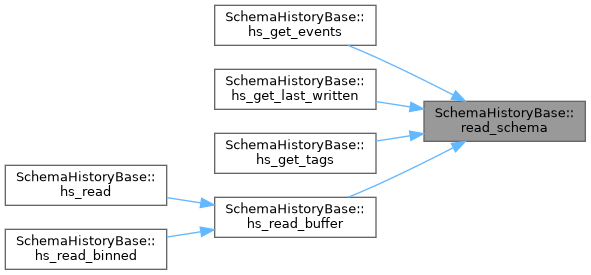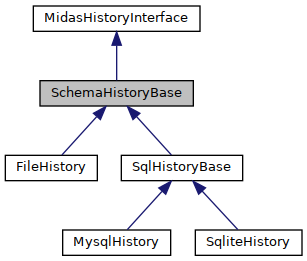
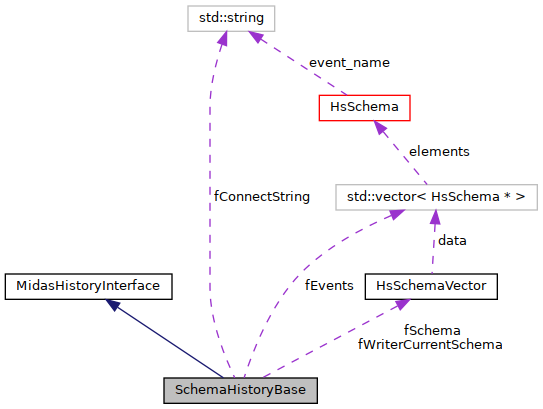
Classes | |
| class | ReadBuffer |
Public Member Functions | |
| SchemaHistoryBase () | |
| virtual | ~SchemaHistoryBase () |
| virtual int | hs_set_debug (int debug) |
| set debug level, returns previous debug level | |
| virtual int | hs_connect (const char *connect_string)=0 |
| returns HS_SUCCESS | |
| virtual int | hs_disconnect ()=0 |
| disconnect from history, returns HS_SUCCESS | |
| int | hs_define_event (const char *event_name, time_t timestamp, int ntags, const TAG tags[]) |
| see hs_define_event(), returns HS_SUCCESS or HS_FILE_ERROR | |
| int | hs_write_event (const char *event_name, time_t timestamp, int buffer_size, const char *buffer) |
| see hs_write_event(), returns HS_SUCCESS or HS_FILE_ERROR | |
| int | hs_flush_buffers () |
| flush buffered data to storage where it is visible to mhttpd | |
| int | hs_clear_cache () |
| clear internal cache, returns HS_SUCCESS | |
| int | hs_get_events (time_t t, std::vector< std::string > *pevents) |
| get list of events that exist(ed) at given time and later (value 0 means "return all events from beginning of time"), returns HS_SUCCESS | |
| int | hs_get_tags (const char *event_name, time_t t, std::vector< TAG > *ptags) |
| get list of history variables for given event (use event names returned by hs_get_events()) that exist(ed) at given time and later (value 0 means "all variables for this event that ever existed"), also see hs_get_tags(), returns HS_SUCCESS | |
| int | hs_get_last_written (time_t timestamp, int num_var, const char *const event_name[], const char *const var_name[], const int var_index[], time_t last_written[]) |
| int | hs_read_buffer (time_t start_time, time_t end_time, int num_var, const char *const event_name[], const char *const var_name[], const int var_index[], MidasHistoryBufferInterface *buffer[], int hs_status[]) |
| returns HS_SUCCESS | |
| int | hs_read (time_t start_time, time_t end_time, time_t interval, int num_var, const char *const event_name[], const char *const var_name[], const int var_index[], int num_entries[], time_t *time_buffer[], double *data_buffer[], int st[]) |
| see hs_read(), returns HS_SUCCESS | |
| int | hs_read_binned (time_t start_time, time_t end_time, int num_bins, int num_var, const char *const event_name[], const char *const var_name[], const int var_index[], int num_entries[], int *count_bins[], double *mean_bins[], double *rms_bins[], double *min_bins[], double *max_bins[], time_t *bins_first_time[], double *bins_first_value[], time_t *bins_last_time[], double *bins_last_value[], time_t last_time[], double last_value[], int st[]) |
| returns HS_SUCCESS | |
 Public Member Functions inherited from MidasHistoryInterface Public Member Functions inherited from MidasHistoryInterface | |
| MidasHistoryInterface () | |
| history type: MIDAS, ODBC, SQLITE, etc | |
| virtual | ~MidasHistoryInterface () |
Protected Member Functions | |
| virtual int | read_schema (HsSchemaVector *sv, const char *event_name, const time_t timestamp)=0 |
| virtual HsSchema * | new_event (const char *event_name, time_t timestamp, int ntags, const TAG tags[])=0 |
| virtual HsSchema * | maybe_reopen (const char *event_name, time_t timestamp, HsSchema *s)=0 |
Protected Attributes | |
| int | fDebug = 0 |
| std::string | fConnectString |
| HsSchemaVector | fWriterSchema |
| std::vector< HsSchema * > | fWriterEvents |
| HsSchemaVector | fReaderSchema |
Additional Inherited Members | |
 Public Attributes inherited from MidasHistoryInterface Public Attributes inherited from MidasHistoryInterface | |
| char | name [NAME_LENGTH] |
| char | type [NAME_LENGTH] |
| history channel name | |
Detailed Description
Definition at line 3127 of file history_schema.cxx.
Constructor & Destructor Documentation
◆ SchemaHistoryBase()
|
inline |
Definition at line 3141 of file history_schema.cxx.
◆ ~SchemaHistoryBase()
|
inlinevirtual |
Definition at line 3146 of file history_schema.cxx.
Member Function Documentation
◆ hs_clear_cache()
|
virtual |
clear internal cache, returns HS_SUCCESS
Implements MidasHistoryInterface.
Definition at line 3660 of file history_schema.cxx.


◆ hs_connect()
|
pure virtual |
returns HS_SUCCESS
Implements MidasHistoryInterface.
Implemented in SqlHistoryBase, and FileHistory.
◆ hs_define_event()
|
virtual |
see hs_define_event(), returns HS_SUCCESS or HS_FILE_ERROR
Implements MidasHistoryInterface.
Definition at line 3470 of file history_schema.cxx.
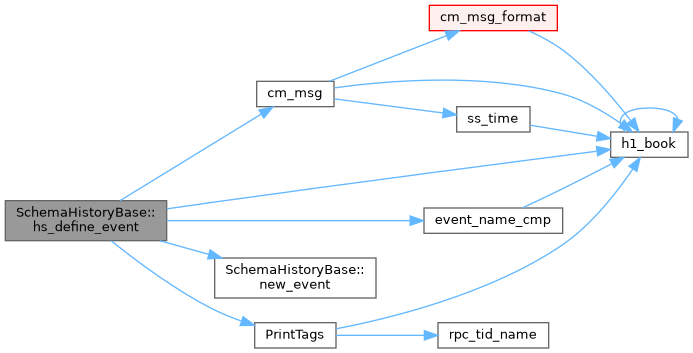
◆ hs_disconnect()
|
pure virtual |
disconnect from history, returns HS_SUCCESS
Implements MidasHistoryInterface.
Implemented in SqlHistoryBase, and FileHistory.
◆ hs_flush_buffers()
|
virtual |
flush buffered data to storage where it is visible to mhttpd
Implements MidasHistoryInterface.
Definition at line 3639 of file history_schema.cxx.

◆ hs_get_events()
|
virtual |
get list of events that exist(ed) at given time and later (value 0 means "return all events from beginning of time"), returns HS_SUCCESS
Implements MidasHistoryInterface.
Definition at line 3671 of file history_schema.cxx.
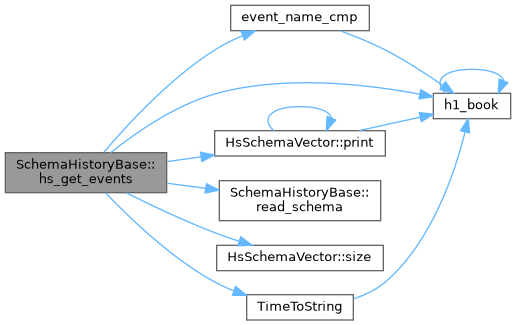
◆ hs_get_last_written()
|
virtual |
Implements MidasHistoryInterface.
Definition at line 3772 of file history_schema.cxx.
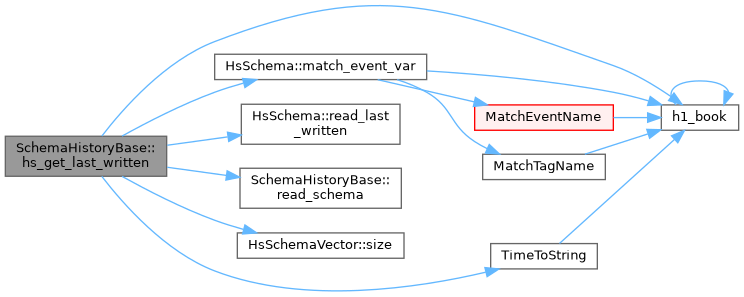
◆ hs_get_tags()
|
virtual |
get list of history variables for given event (use event names returned by hs_get_events()) that exist(ed) at given time and later (value 0 means "all variables for this event that ever existed"), also see hs_get_tags(), returns HS_SUCCESS
Implements MidasHistoryInterface.
Definition at line 3714 of file history_schema.cxx.
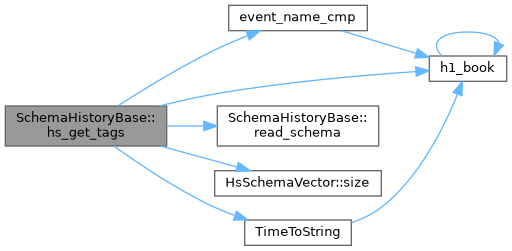
◆ hs_read()
|
virtual |
see hs_read(), returns HS_SUCCESS
Implements MidasHistoryInterface.
Definition at line 3992 of file history_schema.cxx.
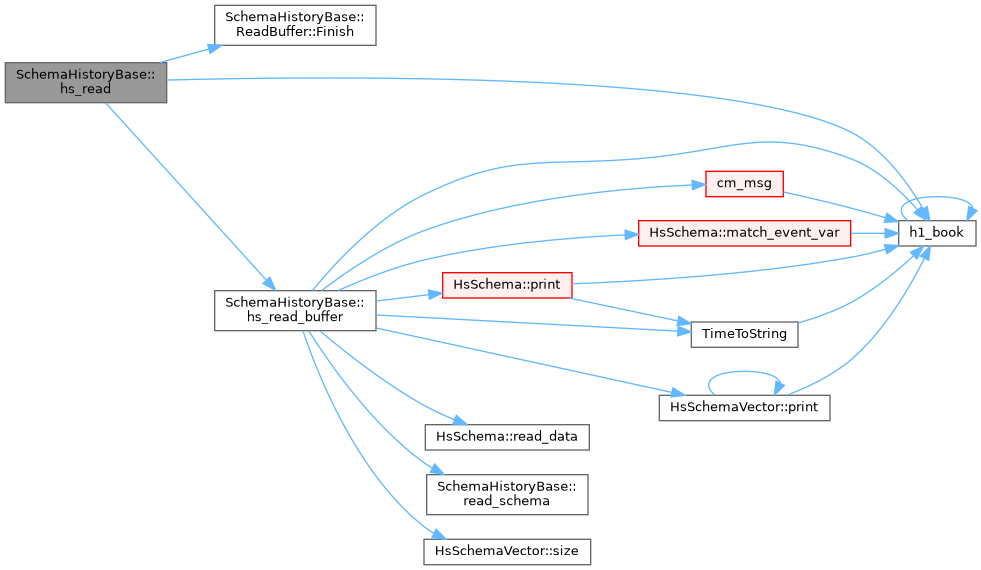
◆ hs_read_binned()
|
virtual |
returns HS_SUCCESS
Implements MidasHistoryInterface.
Definition at line 4041 of file history_schema.cxx.
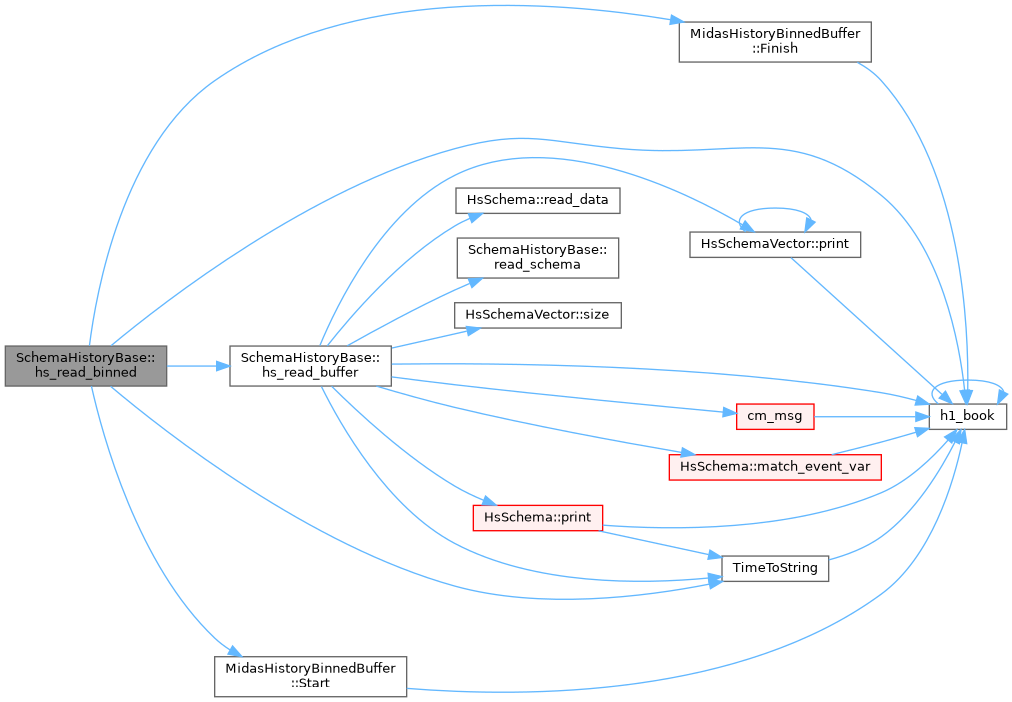
◆ hs_read_buffer()
|
virtual |
returns HS_SUCCESS
Implements MidasHistoryInterface.
Definition at line 3831 of file history_schema.cxx.
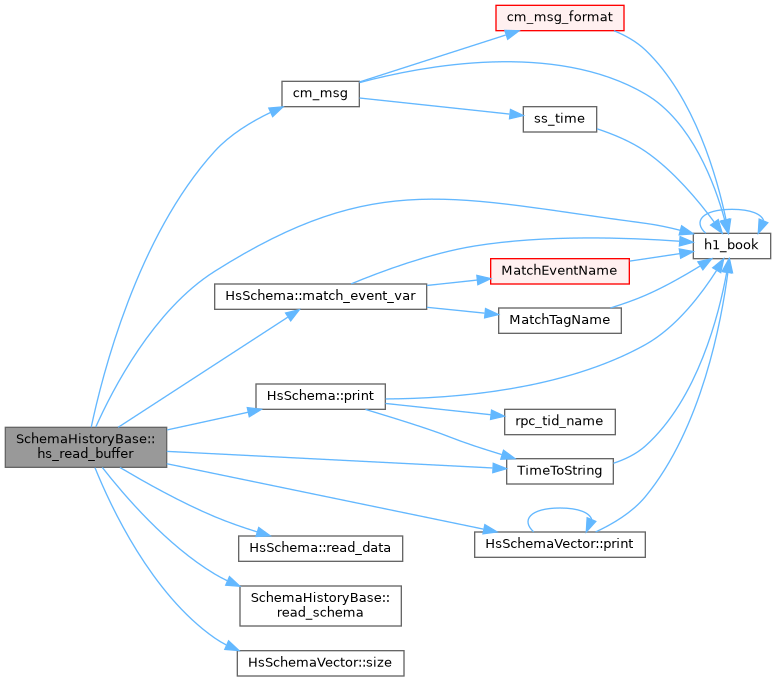

◆ hs_set_debug()
|
inlinevirtual |
set debug level, returns previous debug level
Implements MidasHistoryInterface.
Reimplemented in SqlHistoryBase.
Definition at line 3158 of file history_schema.cxx.

◆ hs_write_event()
|
virtual |
see hs_write_event(), returns HS_SUCCESS or HS_FILE_ERROR
Implements MidasHistoryInterface.
Definition at line 3557 of file history_schema.cxx.
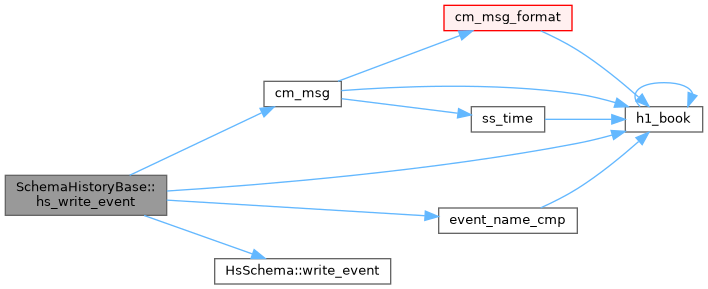
◆ maybe_reopen()
◆ new_event()
◆ read_schema()
|
protectedpure virtual |
Member Data Documentation
◆ fConnectString
|
protected |
Definition at line 3131 of file history_schema.cxx.
◆ fDebug
|
protected |
Definition at line 3130 of file history_schema.cxx.
◆ fReaderSchema
|
protected |
Definition at line 3138 of file history_schema.cxx.
◆ fWriterEvents
|
protected |
Definition at line 3135 of file history_schema.cxx.
◆ fWriterSchema
|
protected |
Definition at line 3134 of file history_schema.cxx.
The documentation for this class was generated from the following file:


